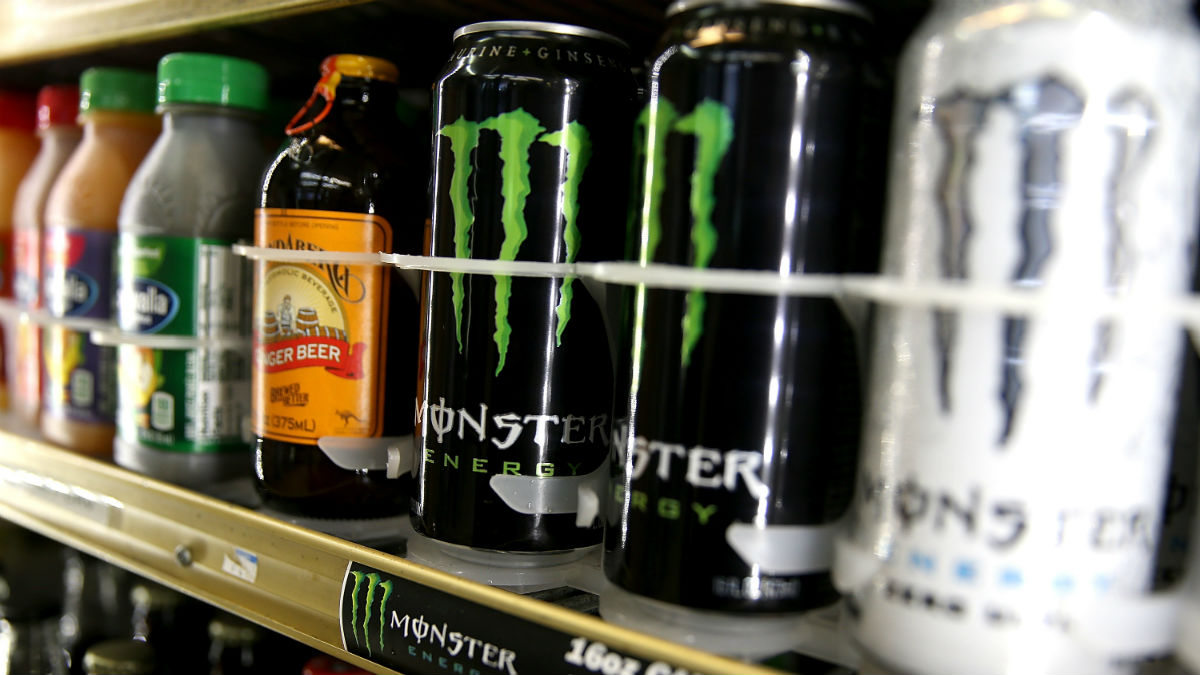Asda and Aldi join Waitrose in banning under-16s from buying energy drinks
Supermarkets will ask for ID to purchase Monster, Rockstar and Red Bull

A free daily email with the biggest news stories of the day – and the best features from TheWeek.com
You are now subscribed
Your newsletter sign-up was successful
Asda and Aldi are to join Waitrose in banning the sale of energy drinks to children under 16 from early March.
The move puts popular brands like Monster, Rockstar and Red Bull on the same level as scratch cards, petrol and spray paint.
Asda “has become the first of the big four supermarkets to announce an age limit, which will apply to 84 high-caffeine drinks,” says the BBC.
The Week
Escape your echo chamber. Get the facts behind the news, plus analysis from multiple perspectives.

Sign up for The Week's Free Newsletters
From our morning news briefing to a weekly Good News Newsletter, get the best of The Week delivered directly to your inbox.
From our morning news briefing to a weekly Good News Newsletter, get the best of The Week delivered directly to your inbox.
Aldi will apply it to soft drinks containing 150mg of caffeine per litre from 1 March.
The move follows calls by campaigners for a complete ban on energy drinks, and it comes weeks after MP Maria Caulfield asked Prime Minister Theresa May to consider a UK-wide ban.
Oliver King, Aldi's managing director of corporate responsibility, said: “We are introducing this age restriction in response to growing concern about the consumption of energy drinks among young people.”
Asda's chief customer officer Andrew Murray said the retailer was working hard to “ensure we get the balance right between offering choice and doing the right thing”.
A free daily email with the biggest news stories of the day – and the best features from TheWeek.com
He added: “We have listened to our customers and want to take a leading position in this area to support parents and teachers in limiting young people's access to high caffeine drinks.”
Youthful customers at the retailers's stores will be asked to produce age identification when purchasing energy drinks containing more than 150mg of caffeine per litre, The Guardian reports.
A single 500ml can of a typical high street energy drink contains 160mg of caffeine - equivalent to around two shots of espresso coffee, says the BBC.
Currently, UK law only mandates that such drinks display a compulsory health warning which states: “High caffeine content. Not recommended for children or pregnant or breastfeeding women or persons sensitive to caffeine.”
"These drinks carry advice stating that they are not recommended for children, so we're choosing to proactively act on that guidance,” said Simon Moore, the retailer’s director of technical and corporate social responsibility.
A recent study by campaign group Action on Sugar said that the high levels of sugar and caffeine in such drinks was “completely inappropriate” for children. The group applauded Waitrose’s new restrictions as demonstrating “great leadership”.
The supermarket’s move was welcomed not only by health activists but by teachers’ union NASUWT, who last month called for schools to ban energy drinks, which they branded a form of “legal high”.
“There is a chronic lack of awareness about the effects of these drinks which many pupils and parents think are just another soft drink,” NASUWT general secretary Chris Keates said in a statement.
“Teachers are left to deal with the effects these stimulants have on pupil behaviour.”
So far, no other supermarkets have announced plans to follow in Waitrose’s footsteps. In 2015, Morrisons abandoned a pilot scheme of similar measures following a two-year trial which was never rolled out beyond six test stores.